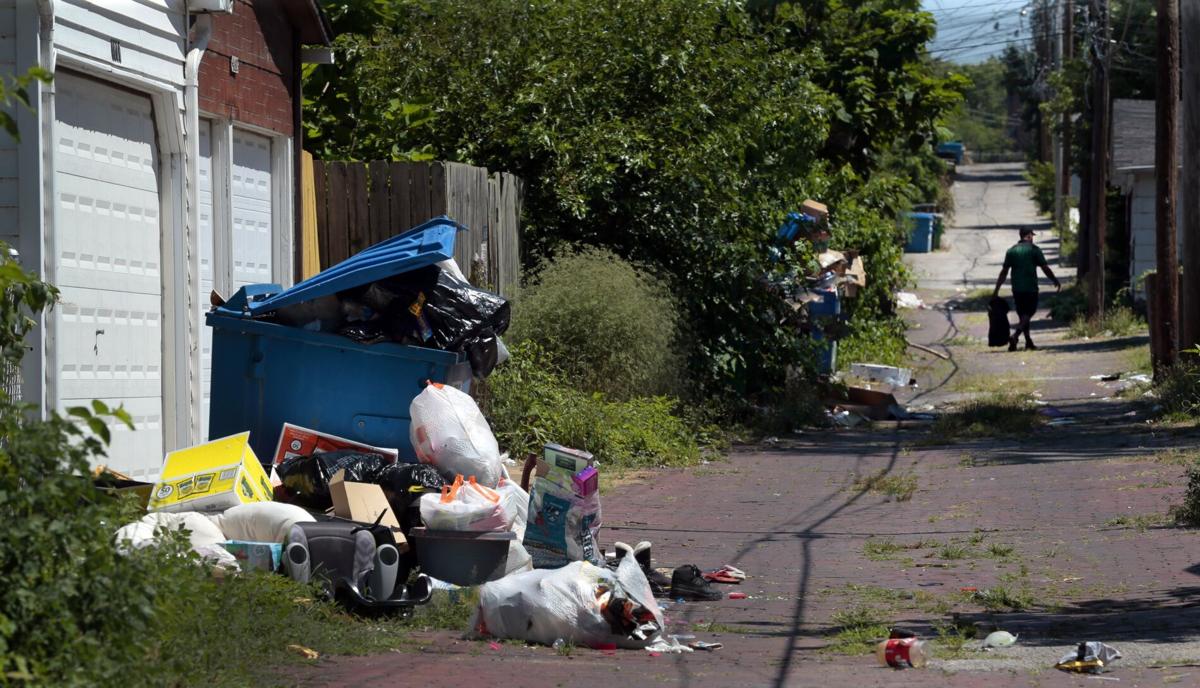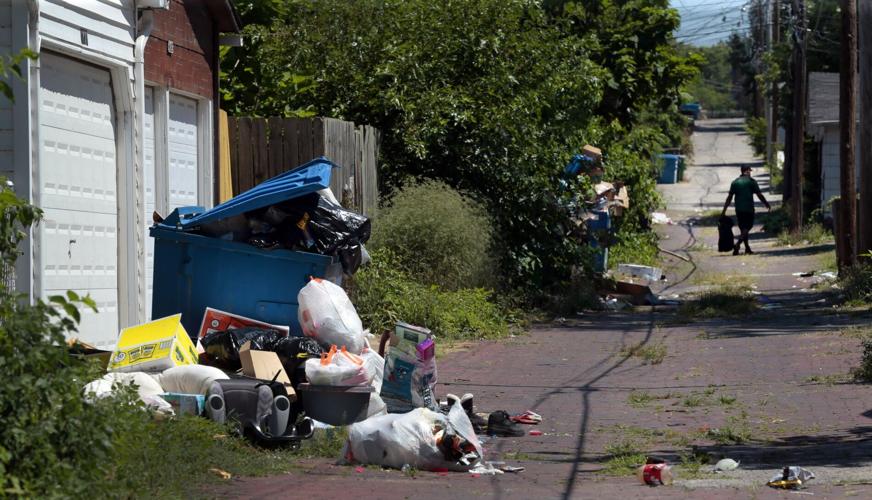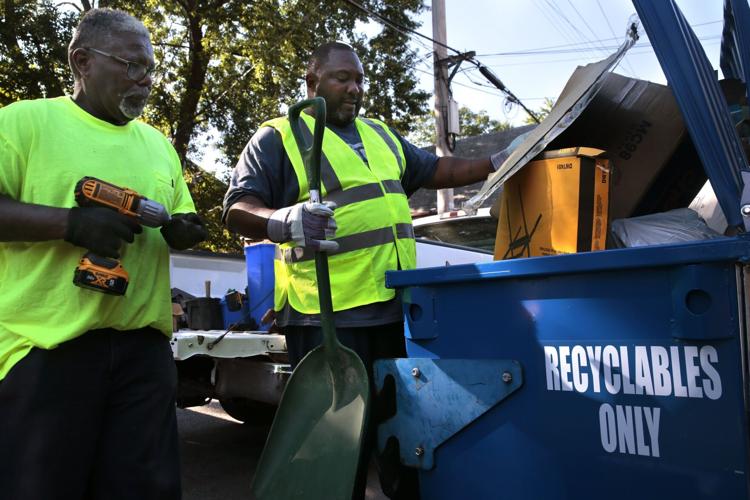ST. LOUIS ÔÇö City leaders are officially putting an end to alley recycling, saying contamination and rising costs have made the program unsustainable.
At times, more than half of city recycling material hasnÔÇÖt actually been recycled, said Ben Jonsson, the mayorÔÇÖs operations chief. The city has to pay extra for it to be taken to the landfill. Meanwhile, the task is taking time and manpower away from another chronic struggle: picking up the trash on time.
Blue recycling dumpsters will stay in place but be used as extra trash containers, Jonsson said. Residents on alley service ÔÇö about 80% of the city ÔÇö who want to recycle will need to take it to drop-off sites situated around the city.
ÔÇ£By making these changes,ÔÇØ Mayor Cara Spencer said in a statement, ÔÇ£we end the costly and ineffective effort that alley recycling had become, despite the good intentions, and we improve our ability to collect trash, which is one of the basic and most crucial services our City is tasked with delivering.ÔÇØ
People are also reading…
The 20% of households with recycling roll carts will see no change. Officials said the roll carts, collected at the front curb, are generally less contaminated with garbage.
The announcement finalizes a big change to basic services under a new mayor who campaigned on a promise to get ╣¹¢┤╩ËãÁ ÔÇ£back to basics.ÔÇØ For years, officials have complained about rising recycling costs ÔÇö and the increasing contamination, which made the whole endeavor less worthwhile. There have been attempts to address the problem by better educating people about what they can and canÔÇÖt recycle.
But Aldermanic President Megan Green, who supported those efforts, said this week itÔÇÖs become clear that something more needs to change.
Still, she said, residents who lose alley recycling should be able to opt into some kind of curbside pickup.
ÔÇ£They need to replace it with something,ÔÇØ she said.
Environmental advocates, speaking at an aldermanic hearing Thursday, said cutting recycling contradicted Spencer's commitment to city services. 
ÔÇ£Recycling is a basic public resource that all of our citizens deserve,ÔÇØ said Jessica Watson, who runs the nonprofit EarthDay365.┬á
Maxine Gill, policy coordinator at the Missouri Coalition for the Environment, dismissed plans to add drop-off sites as a fig leaf. ÔÇ£We know people aren't going to go out of their way to go to drop-off sites,ÔÇØ she said.┬á
The city introduced recycling in alley dumpsters nearly 15 years ago, at the same time it began charging homeowners a trash pickup fee, which started at $11 per month.
It was supposed to be a win-win: The program could keep recycling out of landfills, and even make a little money for the city ÔÇö processors would pay for the material. The blue bins were supposed to have locking lids and slots that trash bags couldnÔÇÖt fit through.
But in 2018 and 2019, spot checks of dumpsters found the average pickup route was 27% contaminated. At the same time, China, the worldÔÇÖs largest importer of recycled material, on what it would buy. Recycling started costing the city rather than paying it.
Those trends accelerated in more recent years. Officials have reported that less than half of the blue-bin material is actually getting recycled. Meanwhile, recycling costs per ton have risen to more than four times what trash disposal costs.
Jonsson, the operations chief, said in the first five months of this year, 52% of city recycling was rejected at the Republic Service processing plant.
The city estimates it has paid $690,000 extra for contaminated ÔÇ£recyclingÔÇØ that ended up in the landfill.
The city first paused alley recycling in the wake of the May 16 tornado. And in the middle two weeks of July, with only roll cart pickup and drop-off sites active, contamination rates were cut in half, Jonsson said.
That improvement, combined with a review of the cityÔÇÖs still-struggling trash operation, helped officials to make the pause permanent.

City refuse employee Tim Haynes Sr., left, and Michael Clark Sr. attach new lift hooks to a recycling bin in an alley behind the 2600 block of Louisiana Avenue in the Tower Grove East neighborhood on July 1, 2022.
Staffing numbers, an issue since the pandemic, have improved somewhat. But on any given day, 15 trucks, or more than a quarter of the 52 that service city alleyways can be out of commission with mechanical issues, Jonsson said.
ÔÇ£ItÔÇÖs rough right now,ÔÇØ he said.
The city isnÔÇÖt giving up on recycling, he said: It is adding more drop-off sites for people with alley dumpsters, and officials will be seeking feedback on their decision and potential new services they could offer, like electronics recycling.
TheyÔÇÖre not going to reduce the current $14 refuse fee, though. Fee revenue falls well short of the refuse divisionÔÇÖs costs.
Jonsson said he compared ╣¹¢┤╩ËãÁÔÇÖ rates for the services it offers ÔÇö including trash, yard waste and bulk pickup ÔÇö to other cities.
ItÔÇÖs still a good deal, he said.┬á
Post-Dispatch photographers capture tens of thousands of images and hours of footage every year. See some of their best work from July 2025 here.

















